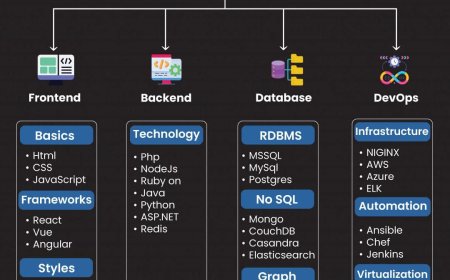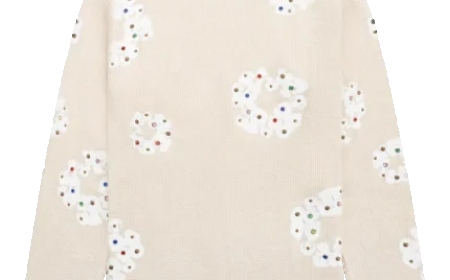Top 10 Omaha Spots for Craft Workshops
Top 10 Omaha Spots for Craft Workshops You Can Trust Omaha, Nebraska, may be known for its rich Midwestern heritage, vibrant food scene, and historic architecture—but beneath its surface lies a thriving community of makers, artists, and craft enthusiasts. Over the past decade, the city has transformed into a hub for hands-on creativity, with an increasing number of studios, galleries, and communit
Top 10 Omaha Spots for Craft Workshops You Can Trust
Omaha, Nebraska, may be known for its rich Midwestern heritage, vibrant food scene, and historic architecture—but beneath its surface lies a thriving community of makers, artists, and craft enthusiasts. Over the past decade, the city has transformed into a hub for hands-on creativity, with an increasing number of studios, galleries, and community centers offering immersive craft workshops. From pottery and woodworking to textile arts and papermaking, Omaha’s artisanal culture is alive and well. But with so many options, how do you know which workshops are truly worth your time and investment? This guide dives deep into the top 10 Omaha spots for craft workshops you can trust—vetted for quality instruction, authentic materials, safe environments, and consistent community feedback. Whether you’re a complete beginner or a seasoned crafter looking to refine your skills, these ten venues offer more than just classes—they offer connection, mastery, and the quiet joy of making something with your own hands.
Why Trust Matters
In the world of craft workshops, trust isn’t just a nice-to-have—it’s essential. Unlike traditional educational settings, craft workshops often involve expensive tools, potentially hazardous materials, and deeply personal creative expression. When you invest your time, money, and emotional energy into a class, you deserve more than a generic experience. You deserve safety, expertise, and integrity.
Trustworthy craft workshops prioritize instructor qualifications. Look for studios where teachers have formal training, professional portfolios, or years of hands-on experience in their medium. These instructors don’t just demonstrate techniques—they explain the “why” behind them. They correct form, encourage experimentation, and foster an environment where mistakes are part of the learning process, not failures to be punished.
Equally important is transparency. Trusted studios clearly list what materials are included, what you need to bring, and what the final product will look like. They avoid vague marketing language like “unleash your inner artist” without substance. Instead, they detail curriculum outcomes: “In this 4-week class, you’ll learn hand-building techniques to create three functional ceramic vessels with glazing and firing included.”
Another pillar of trust is community. The best workshops don’t operate in isolation. They host open studio hours, participate in local art walks, and welcome feedback. They have repeat students—not because of convenience, but because participants feel seen, challenged, and valued. Reviews on platforms like Google, Yelp, and Instagram aren’t just testimonials; they’re real-time indicators of consistency and quality.
Finally, trust is built through ethics. A reputable studio sources sustainable, non-toxic materials. They respect intellectual property by not copying designs from popular influencers. They accommodate diverse skill levels and learning styles. And perhaps most importantly, they don’t overpromise. They understand that mastery takes time—and they honor that journey.
In a city like Omaha, where community ties run deep, the craft scene has flourished precisely because these values are upheld. The venues listed below have earned their reputation not through flashy ads, but through years of showing up—reliably, skillfully, and with heart.
Top 10 Omaha Spots for Craft Workshops You Can Trust
1. The Clay Studio at Creighton
Located on the historic Creighton University campus, The Clay Studio at Creighton offers some of the most technically rigorous ceramic workshops in the region. Founded by a former ceramics professor with over 25 years of teaching experience, the studio maintains a small class size—never more than eight students per session—to ensure individual attention. Classes range from introductory wheel-throwing to advanced glaze chemistry and raku firing.
What sets this studio apart is its academic rigor combined with artistic freedom. Students don’t just learn how to center clay—they understand the physics of shrinkage, the mineral composition of glazes, and the historical context of ceramic traditions across cultures. The studio also partners with local artists for guest residencies, giving participants exposure to contemporary practices beyond textbook techniques.
Materials are included in tuition, and all pieces are fired and ready for pickup within two weeks. The studio’s commitment to sustainability is evident in its water recycling system and use of non-toxic, lead-free glazes. With consistently high ratings on Google and a waiting list that spans months, The Clay Studio at Creighton is a gold standard for ceramic education in Omaha.
2. Omaha Fiber Arts Collective
Founded by a group of textile artists who met through a local craft fair, the Omaha Fiber Arts Collective has grown into one of the most inclusive and innovative craft spaces in the city. Their workshop offerings span knitting, weaving, natural dyeing, embroidery, and even bookbinding. What makes them unique is their emphasis on traditional techniques paired with modern design sensibilities.
Each instructor is a practicing artist with a professional exhibition record. In their “Natural Dyes from the Garden” course, participants learn to extract pigments from plants grown on-site—indigo, madder root, onion skins—and apply them to wool, silk, and cotton. No synthetic dyes are ever used. The studio also hosts monthly “Mend & Make” nights, where attendees bring damaged clothing to repair using visible mending techniques—a philosophy that values sustainability over disposability.
The space is fully accessible, with adjustable-height worktables and seating for all body types. Class sizes are capped at ten, and all materials are provided. The Collective also maintains a lending library of looms, knitting needles, and embroidery hoops for members. Their commitment to ethical craft extends to their pricing model: sliding scale tuition is available for students, seniors, and those facing financial hardship.
3. The Woodshop at The Maker’s Loft
For those drawn to the scent of sawdust and the satisfying grain of hardwood, The Woodshop at The Maker’s Loft is Omaha’s premier destination for woodworking education. Housed in a repurposed industrial building in the Dundee neighborhood, this workshop offers everything from beginner-level cutting board classes to advanced furniture joinery and lathe turning.
Instructors are certified by the Woodworkers Guild of America and emphasize safety above all. Each participant completes a mandatory tool orientation before using any machinery. The curriculum is structured in progressive modules: start with hand tools, move to power tools, then design and build a complete project. By the end of the “Craft Your First Chair” course, students walk away with a solid wood dining chair they designed and built themselves.
Unlike many woodworking shops that charge extra for materials, The Maker’s Loft includes all lumber, finishes, and hardware in the class fee. They also offer a “Tool Rental Program” for alumni who want to continue working independently. The space is well-lit, climate-controlled, and equipped with state-of-the-art dust collection systems. Their Instagram feed showcases student projects with detailed captions explaining the techniques used—transparency that builds trust and inspires newcomers.
4. Paper & Ink Studio
Specializing in hand papermaking, letterpress printing, and book arts, Paper & Ink Studio is a hidden gem tucked away in the Old Market district. Founded by a former museum conservator and a master bookbinder, this studio offers workshops that are as much about history as they are about technique.
Participants in the “Handmade Paper from Cotton Lint” course learn to create sheets using recycled cotton fibers, add botanical inclusions, and dry them on traditional felt blankets. In “Letterpress 101,” students set metal type by hand, ink presses, and print greeting cards or fine art prints on thick cotton paper. The studio even offers a “Bookbinding: Coptic Stitch” class where participants create a journal from scratch, including hand-sewn signatures and leather covers.
What makes Paper & Ink Studio trustworthy is its dedication to preserving analog craft in a digital age. No digital printing is allowed on-site—everything is done manually, with patience and precision. The studio sources its paper pulp from sustainable cotton suppliers and uses non-toxic, archival-grade adhesives. They also host quarterly “Print & Sip” events where local poets read alongside displayed prints, creating a multisensory experience that connects craft to culture.
5. Omaha Glassworks
Omaha Glassworks is the only studio in the metro area offering fused glass and stained glass workshops with professional kilns and safety-certified instructors. Located in a converted warehouse in the West Omaha corridor, the studio provides a rare opportunity to work with molten glass without needing a full studio setup.
Beginners start with “Fused Glass Coasters,” learning how to cut glass safely, arrange patterns, and load kilns for controlled firing. Advanced students can enroll in “Stained Glass Suncatchers,” where they learn copper foil technique, soldering, and patina application. All classes include a take-home kiln firing—students receive their finished piece in 48 hours.
Trust here is built through rigorous safety protocols. Each participant is fitted with protective eyewear, gloves, and aprons. The studio maintains an open-air ventilation system and conducts monthly equipment inspections. Instructors are certified by the Glass Art Society and have taught at regional art colleges. The studio also publishes a monthly blog detailing the science behind glass behavior at different temperatures—an educational resource that demonstrates their depth of knowledge.
6. The Artisan’s Forge
At The Artisan’s Forge, metalwork meets artistry in a space designed for both beginners and experienced makers. Specializing in forged iron, copper repoussé, and jewelry making, this studio offers workshops that are as much about design as they are about hammer and anvil.
In the “Forged Iron Hook & Hanger” class, students learn to heat steel in a propane forge, shape it with hand tools, and temper it for durability. In “Hand-Hammered Copper Jewelry,” participants create earrings, pendants, and rings using traditional repoussé techniques—pushing metal from the back to form relief designs. All projects are finished with a hand-rubbed patina or polish.
What sets this studio apart is its emphasis on functional art. Every piece made here is meant to be used—whether it’s a door handle, a tea infuser, or a necklace worn daily. The instructors, all practicing metal artists with gallery representation, guide students through the entire process: sketching, prototyping, refining, and finishing. Materials are sourced from recycled metals whenever possible, and the studio offers a “Take-Home Tool Kit” option for those who want to continue working independently.
7. Omaha Quilt Guild Workshop Center
While many assume quilting is a relic of the past, the Omaha Quilt Guild Workshop Center proves otherwise. This nonprofit space, housed in a restored 1920s church, offers structured quilting classes that blend tradition with innovation. From “Patchwork Basics” to “Modern Quilt Design,” their curriculum is developed by nationally recognized quilt artists.
Participants learn precision piecing, free-motion quilting on long-arm machines, and even how to quilt by hand using the “running stitch” method. The studio’s “Community Quilt Project” invites students to contribute blocks to a larger collaborative piece displayed annually at the Omaha Public Library. This model fosters not just skill development, but collective creativity.
Trust is earned through consistency: classes are offered year-round, with detailed syllabi posted online. All machines are maintained weekly, and fabric is pre-washed to prevent shrinkage. The center also offers free “Quilt Clinic” hours where students can bring unfinished projects for one-on-one help. Their open-door policy and transparent pricing—no hidden fees, no upsells—have made them a beloved fixture in Omaha’s craft community.
8. The Botanical Print Atelier
For those who find inspiration in nature, The Botanical Print Atelier offers a serene, immersive experience in plant-based printmaking. Located in a sunlit greenhouse studio on the outskirts of Omaha, this workshop teaches the ancient art of eco-printing—transferring the color and shape of leaves, flowers, and bark directly onto fabric or paper using heat, steam, and natural mordants.
Students gather seasonal botanicals from the studio’s own garden or local foraging sites (with ethical guidelines). In the “Eco-Print Scarves” class, they arrange leaves on silk, bundle them with string, simmer them in iron or alum solutions, and unwrap to reveal stunning, one-of-a-kind patterns. No synthetic dyes or transfers are used—only what nature provides.
The studio’s founder is a certified botanical artist with a background in ecological conservation. Her teaching philosophy centers on mindfulness: each step of the process is done slowly, with attention to the material’s origin and lifecycle. The studio also hosts seasonal “Forage & Print” outings to nearby nature preserves, where participants collect materials under guided instruction.
Materials are included, and all fabrics are organic cotton or silk. The studio maintains a zero-waste policy—leftover plant matter is composted, and rinse water is filtered for garden use. Their Instagram page features timelapse videos of prints emerging from bundles, a visual testament to the magic of natural processes.
9. Omaha Jewelry Lab
Specializing in fine jewelry fabrication, Omaha Jewelry Lab is the only studio in the city offering small-group workshops in lost-wax casting, stone setting, and hand engraving. Founded by a graduate of the Gemological Institute of America, the lab provides a professional-grade environment for those serious about jewelry making.
In the “Cast Your First Ring” course, students design a wax model, invest it in plaster, burn out the wax, and pour sterling silver into the mold. They then file, polish, and finish the piece themselves. Advanced classes cover prong setting, bezel setting, and engraving with hand gravers. Each student works at their own bench with professional tools, under the direct supervision of a master jeweler.
Trust is established through transparency in materials. All metals and gemstones are sourced from ethical suppliers with documented chain-of-custody. Students are shown certificates of origin for any stones used. The studio also offers a “Design Consultation” session before class begins, ensuring the project aligns with the student’s skill level and goals.
With no mass production or pre-made kits, every piece is unique. The lab’s alumni have gone on to launch their own jewelry lines, sell at regional craft fairs, and even teach workshops themselves. Their commitment to craftsmanship over commercialism is evident in every detail—from the clean, minimalist workspace to the detailed feedback provided on every project.
10. The Omaha Makerspace
More than a workshop, The Omaha Makerspace is a community-driven innovation hub that blends traditional craft with digital fabrication. Located in a converted schoolhouse in the Benson neighborhood, it offers hybrid classes that merge hand skills with technology—like laser-cut wooden puzzles, 3D-printed ceramic molds, or CNC-carved textile patterns.
What makes it trustworthy is its dual focus: respect for analog craft and intelligent use of technology. In “Digital Design, Hand-Finished Wood,” students learn to use CAD software to design a box, then cut, sand, and finish it by hand. In “Smart Textiles,” they sew conductive thread into fabric to create wearable LED circuits. All projects are designed to be completed without prior technical experience.
Instructors are trained in both craft and engineering disciplines. The space is open daily for self-directed work, and members can book equipment like laser cutters, 3D printers, and sewing machines after completing safety certifications. The Makerspace also hosts monthly “Show & Tell” nights where participants present their projects to the community—fostering accountability, pride, and peer learning.
Unlike commercial craft centers that prioritize profit, The Omaha Makerspace operates as a nonprofit with a mission to democratize making. Membership fees are low, and scholarships are available. Their transparent governance model includes community input on class offerings—making them not just a place to learn, but a place to shape the future of craft in Omaha.
Comparison Table
| Studio Name | Primary Medium | Class Size | Materials Included | Beginner-Friendly | Advanced Options | Accessibility | Community Engagement |
|---|---|---|---|---|---|---|---|
| The Clay Studio at Creighton | Ceramics | 8 | Yes | Yes | Glaze chemistry, raku firing | Wheel-accessible | Guest artists, exhibitions |
| Omaha Fiber Arts Collective | Textiles, Dyeing | 10 | Yes | Yes | Bookbinding, natural dye recipes | Adjustable tables, all body types | Mend & Make nights, sliding scale |
| The Woodshop at The Maker’s Loft | Woodworking | 6 | Yes | Yes | Furniture joinery, lathe turning | ADA-compliant | Tool rental, alumni events |
| Paper & Ink Studio | Bookbinding, Letterpress | 8 | Yes | Yes | Handmade paper, archival binding | Wheelchair accessible | Print & Sip events, poetry readings |
| Omaha Glassworks | Fused & Stained Glass | 8 | Yes | Yes | Stained glass suncatchers | ADA-compliant | Monthly kiln firing updates |
| The Artisan’s Forge | Metalwork, Jewelry | 6 | Yes | Yes | Repoussé, hand engraving | Adjustable benches | Tool kit option, gallery shows |
| Omaha Quilt Guild Workshop Center | Quilting | 12 | Partial (fabric provided) | Yes | Long-arm quilting, modern design | Wheelchair accessible | Community quilt project |
| The Botanical Print Atelier | Eco-printing | 6 | Yes | Yes | Seasonal foraging, plant chemistry | Outdoor space, shaded seating | Forage & Print outings |
| Omaha Jewelry Lab | Fine Jewelry | 5 | Yes (metals/gems) | Yes | Lost-wax casting, stone setting | ADA-compliant | Design consultations, alumni showcases |
| The Omaha Makerspace | Hybrid Craft & Tech | 10 | Partial (materials vary) | Yes | CNC, laser cutting, smart textiles | Wheelchair accessible | Show & Tell nights, nonprofit governance |
FAQs
How do I know if a craft workshop is legitimate and not just a gimmick?
Look for transparency in curriculum, instructor credentials, and material sourcing. Reputable studios provide detailed class descriptions, list instructor bios, and show photos of past student work. Avoid places that use vague phrases like “unlock your creativity” without explaining what you’ll actually learn. Check reviews on multiple platforms—consistent feedback about safety, quality, and teaching style is a strong indicator of trustworthiness.
Are these workshops suitable for complete beginners?
Yes. All ten studios listed offer beginner-level classes designed for those with no prior experience. Instructors are trained to break down complex techniques into manageable steps. Many studios even provide “Intro to Craft” packages that include a single session to test the medium before committing to a full course.
Do I need to bring my own tools or materials?
Most workshops include all necessary materials and tools in the class fee. However, some advanced or long-term classes may ask you to purchase specific items (like a personal sketchbook or pair of safety glasses). Always read the class description carefully—trusted studios will clearly outline what’s provided and what’s not.
Can I take a workshop if I have physical limitations?
Several of these studios are ADA-compliant and offer adaptive tools or modified techniques. The Omaha Fiber Arts Collective and The Omaha Makerspace are particularly known for their inclusive design. Contact the studio directly to discuss your needs—they’re often happy to accommodate.
What if I miss a class? Can I make it up?
Policies vary. Studios like The Clay Studio at Creighton and The Woodshop at The Maker’s Loft offer one complimentary make-up session per course. Others, like Paper & Ink Studio, provide recorded demonstrations for missed sessions. Always ask about make-up policies before registering.
Are these workshops expensive?
Prices range from $45 for a single-session intro class to $350 for multi-week courses. Most fall between $80–$200. Compared to similar cities, Omaha’s craft workshops are reasonably priced. Many studios offer scholarships, sliding scale fees, or payment plans. Remember: the cost includes professional instruction, materials, equipment use, and often, firing or finishing services.
Do these workshops lead to certification or credentials?
None of these studios offer formal academic certification. However, they do provide completion certificates upon request, and many students use their work from these classes to build portfolios for art school, craft fairs, or freelance work. The value lies in skill acquisition, not paper credentials.
Can I visit the studio before signing up?
Most welcome visitors during open studio hours or by appointment. The Omaha Makerspace and Omaha Fiber Arts Collective host monthly “Open House” events where you can tour the space, meet instructors, and even try a short demo. Don’t hesitate to ask—it’s a sign of a confident, community-oriented studio.
Are children allowed in these workshops?
Most workshops are designed for adults 18 and older. However, The Clay Studio at Creighton and The Woodshop at The Maker’s Loft offer family-friendly “Parent & Child” sessions for ages 10+. Always confirm age restrictions before registering.
How do I know if I’ll like a medium before investing in a full course?
Many studios offer one-time “Taster Classes” for under $30. Try a single session in pottery, glass, or fiber arts before committing to a four-week course. This is the best way to determine if a medium resonates with you.
Conclusion
Omaha’s craft workshop scene is not defined by its size, but by its depth. These ten studios have earned their reputation not through marketing budgets, but through years of showing up—with patience, precision, and integrity. Whether you’re drawn to the tactile warmth of hand-thrown clay, the quiet rhythm of hand-stitched thread, or the bold transformation of molten glass, there’s a space here that will meet you where you are.
Trust in these workshops isn’t accidental. It’s built through small, consistent actions: an instructor who remembers your name, a studio that cleans its tools after every class, a material list that’s honest and complete, a space that welcomes you without judgment. These are the quiet markers of excellence.
As you choose your next craft journey, remember this: the best workshops don’t just teach you how to make something. They teach you how to pay attention—to the grain of the wood, the texture of the fiber, the weight of the metal, the silence between strokes. In a world that moves too fast, these spaces offer something rare: time, presence, and the dignity of making with care.
Find your studio. Pick up your tools. Begin.





















